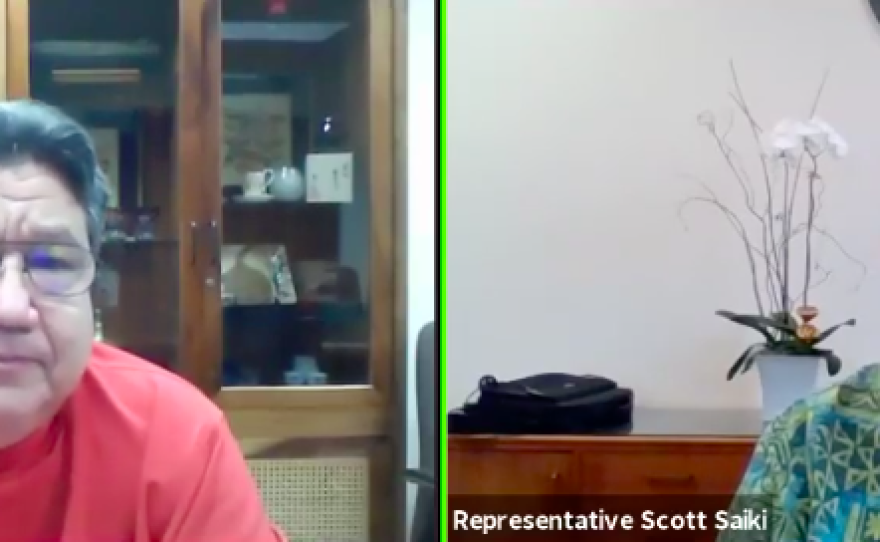State lawmakers will return to Honolulu to address a budget shortfall of roughly $1 billion. Legislators and staff will receive symptom checks, but no lab test for COVID-19.
Lawmakers are scheduled to be back in session on Monday, with plans to work for 6 to 10 days.
The Legislature adjourned prematurely in March as part of the effort to stop the spread of coronavirus. On Thursday, leaders in the House and Senate announced that they will call the lawmakers back to the capitol to address the funding gap that has developed since adjournment.
With almost no tourists and drastically reduced consumer spending, Senate President Ron Kochi says receipts from the state’s hotel and general excise taxes have declined. The state also postponed the deadline to file income taxes to help struggling residents.
“In the near term, those are some of the most significant impacts and they are some of the biggest revenue generators we have,” the Kauai senator said via video conference.
The state constitution requires a balanced budget, but lawmakers are now staring at a hole roughly equivalent to 6% of total spending. They have a number of options for plugging that hole, such as eliminating vacant government staff positions or redirecting appropriated funds that have gone unspent by the administration.
Speaker Scott Saiki says lawmakers will also consider two options for borrowing the funds, either through a federal loan program or by issuing pension obligation bonds, which would essentially allow the state to use credit to cover its required annual contribution to the Employee Retirement System.
“There are going to be various tools that money committees advance to give the governor options to address the shortfall,” said Speaker Saiki, referring to the House Finance and Senate Ways and Means Committees, which are responsible for reviewing the allocation of funds.
Beyond finding the money is the problem of how to get 76 lawmakers, who hail from all corners of the state, to the capitol and back home, without spreading the virus. Saiki says members and staff will receive a symptom check each day when entering the capitol. Neighbor Island legislators will be checked before flying to Honolulu.
“They go through a temperature check at the airport on their island. And when they arrive at the capitol, they’ll go through another temperature check,” he noted.
He added that they may enlist the Hawaii National Guard to carry out those checks. There will also be social distancing measures in place within the capitol to limit close contact. He noted designated entrances and creating more space between members during floor sessions as examples.
Symptom checks can be helpful, but also problematic. They are not a definitive indicator of infection, as some contagious individuals do not display certain symptoms, or any at all. There are no plans to give lawmakers the more conclusive lab test for COVID-19. Senate President Kochi says that’s due in part to concerns about equity.
“If we’re looking at testing the members, then I need to make sure that every one of my employees, and the Speaker’s employees, and our joint employees at the Legislative Reference Bureau can be tested as well. We need to make sure there is no special treatment for the legislators.”
At a separate Senate hearing on Thursday, state Attorney General Clare Connors stated that lawmakers have been given approval to travel interisland for their essential duties, but they will be required to quarantine at their residence or place of lodging on Oahu when not at the capitol.
A spokesperson for the governor confirmed that via email, but noted that Neighbor Island legislators will not have to quarantine when they return home.




